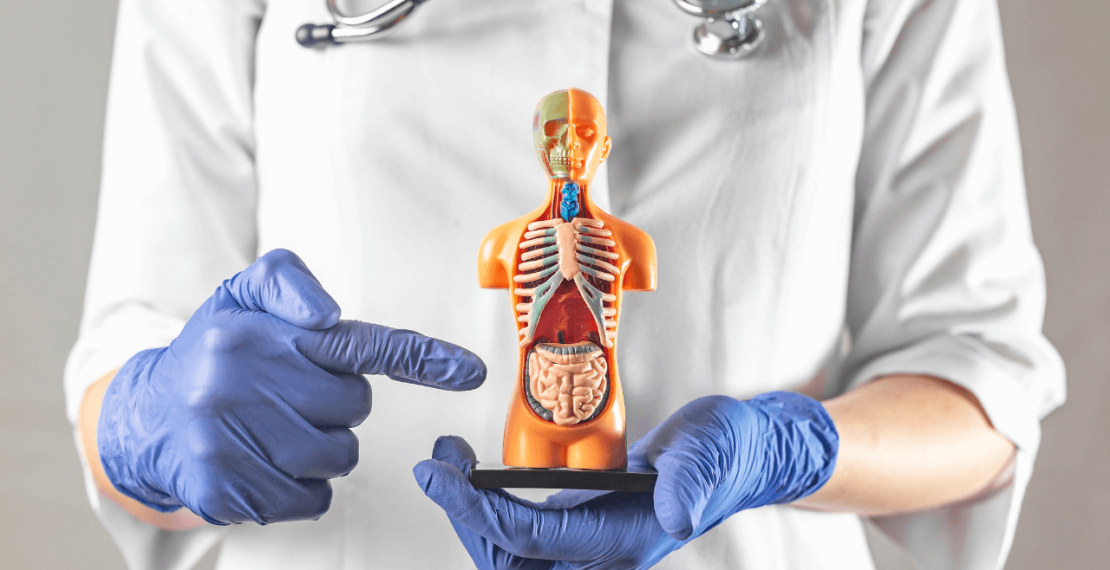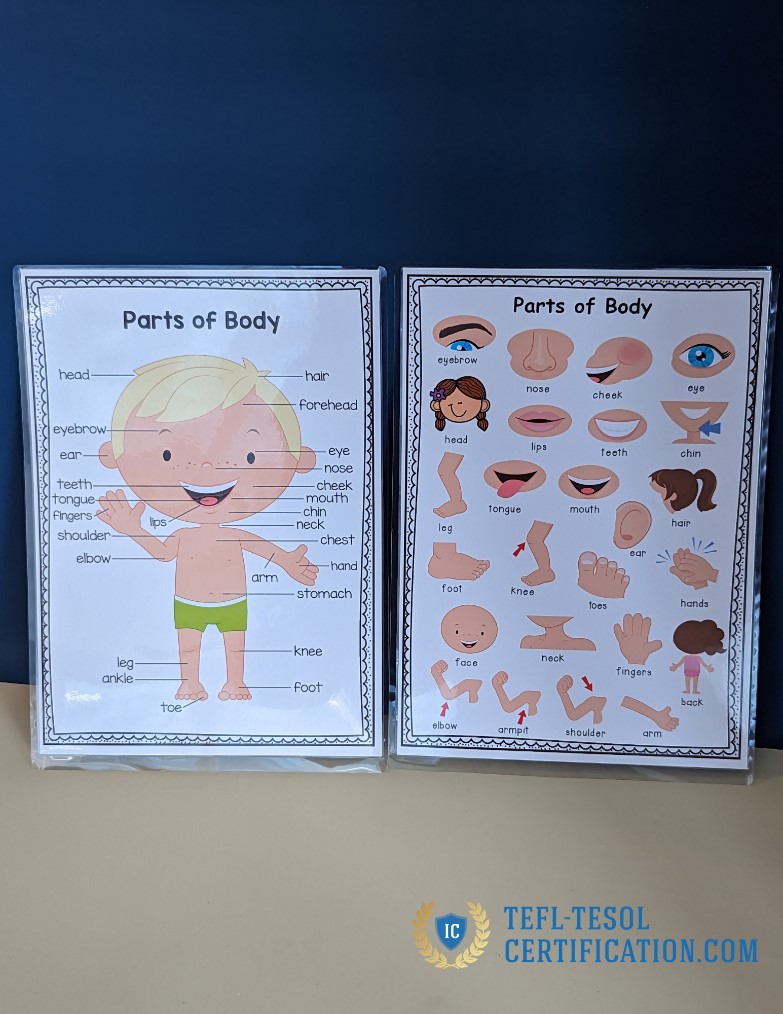Liked the article?
Share with friends!
Teaching English and Covering Medical Topics through Role-Play Games

The main objective of every English class should be a communicative purpose. That is why it is crucial to use the CLT(Communicative Language Teaching) method in your English classes. Your students need to practice real-life scenarios and learn vocabulary that they will use in their lives when they need to use English as their second or foreign language.
In this article, you, as an EFL/ESL teacher, will find good ideas for a hospital-themed class. However, it is not enough to just gather some ideas to conduct an effective English lesson. A professional English teacher needs to complete a TEFL & TESOL course to learn and utilize the main strategies for creating outstanding lessons that make sense for students and help them achieve great results in learning English as a second or foreign language.
Get your TEFL TESOL certification
Travel, work online, get a job abroad, or be
an EFL and ESL teacher in your country.
So, briefly, CLT is all about communication, practicing speaking, and real-life scenarios. Role-play games are perfect for this purpose.
Recommendations before starting role-playing games
Before every role-play performance, you must do a proper job of enriching students' vocabulary so that they won't remain silent during the practice.
First of all, the hospital topic is a good opportunity to explain the difference between 'at the hospital' and 'in the hospital.' That will be your first discussion with the students.
The next step is to present the most common illnesses and medical vocabulary. Medical terminology is vast, and students will not be able to remember it all. Don't think that you can cover this topic in just one or two lessons. You will need more time, and that is absolutely fine because it is one of the most important aspects of our lives, deserving dedicated attention.
Each lesson should introduce new vocabulary to your students, and during each lesson, you can conduct role-plays with doctors and patients. Divide students into pairs and assign the roles of patient and doctor. It would be better if each pair performs in front of the class, as each case is different, and it will be helpful for everyone to listen and learn from each other.
First, I would recommend getting students familiar with body terminology, not only basic body parts like 'head, shoulders, knees, and toes,' but also the inner organs such as the stomach, heart, kidneys, lungs, abdomen, and so on. Discuss different types of aches, like headaches and stomachaches.

For the first few lessons, it would be great to incorporate role-playing games in a pharmacy setting, where a patient doesn't need a doctor's prescription but instead requires a consultation with a pharmacist.

The next step involves introducing more medicine vocabulary, such as:
- Cough
- Runny nose
- Toothache
- Stomachache
- Sore throat
- Fever
- Allergy
- Headache
- Cold
- Flu
- Rash
- Blister
- Broken leg
- Bruise
- Cut
- Scrape
- Bandage
- Crutches
- Needle
- Medicine
- Sunburn
- Sting
- Itch
- Burn
- X-ray
- Splinter
- Stitches
Advanced medical vocabulary:
- Abdomen: the area of the body that contains organs such as the pancreas, stomach, intestines, liver, and gallbladder
- Abnormal: not typical, usual, or regular
- Acute: extremely sharp or intense
- Allergy: a hypersensitive immunological reaction to a substance
- Amputate: to surgically remove a limb or part of a limb
- Anemia: a deficiency of red blood cells or hemoglobin in the blood
- Anesthetic: a drug that causes temporary loss of bodily sensations
- Arthritis: inflammation of a joint or joints, resulting in pain and stiffness
- Benign: not dangerous to health, not recurrent, or progressive
- Bruise: a small injury that results in discoloration of the skin
- Complain: to express discontent, displeasure, or unhappiness about something
- Condition: the state of health or well-being
- Diagnosis: the process of identifying the nature or cause of a phenomenon
- Disability: a physical or mental condition that limits a person's ability to perform tasks
- Disorder: a disturbance of normal functioning in the body or mind
- Emergency: a sudden unforeseen crisis that requires immediate action
- Examine: to observe, check out, or inspect something carefully
- Excessive: beyond normal or acceptable limits
- Genetic: relating to the study of heredity and variation in organisms
- Germ: a microorganism or structure from which tissue can develop into an organism
- Gurney: a metal stretcher with wheels, used for transporting patients
- Immune: pertaining to the condition in which an organism can resist disease
- Infection: the invasion of the body by pathogenic microorganisms
- Injured: harmed or damaged, usually due to an accident or trauma
- Injury: physical damage to the body caused by violence or accident
- Intense: extremely sharp or strong
- Intravenous: within or by means of a vein, typically referring to the administration of fluids or medication through a vein
- Malignant: harmful or dangerous to health
- Nausea: the state or feeling of sickness or queasiness, often preceding vomiting
- Numb: lacking sensation or feeling
- Obstetrics: the branch of medicine dealing with childbirth and pregnancy
- Paralyze: to cause someone or something to become immobile or unable to move
- Patient: a person who requires medical care or treatment
- Physician: a licensed medical practitioner, also known as a doctor
- Prenatal: occurring or existing before birth
- Prescription: the written instructions or directions for a medication or treatment
- Prevention: the act of hindering or stopping something from happening
- Procedure: a particular course of action intended to achieve a result, especially in a medical context
- Respiratory: pertaining to the act of breathing or the respiratory system
- Seizure: a sudden attack characterized by spasms or convulsions
- Spasm: a painful and involuntary muscular contraction
- Specimen: a small sample of tissue or fluid taken for diagnostic purposes
- Sprain: to twist suddenly, causing a wrenching injury to a joint
- Stretcher: a device for transporting someone who is ill or wounded
- Suffering: the experience of physical or mental pain or distress
- Surgery: the branch of medical science that treats diseases or injuries by operative procedures
- Surveillance: the act of keeping an eye on or supervising something
- Vein: a blood vessel that carries blood toward the heart
- Ward: a person who is under the protection or care of another, especially in a hospital setting
- Wound: an injury to living tissue, typically involving a break in the skin
Before starting the game, show your students a related video so they can learn helpful phrases and how to initiate and conclude their patient-doctor dialogues with small talk. You can use the following YouTube video.
Medical topic game scenarios
For the role-play game, you can create cards with symptoms and the appropriate diagnoses. Here are some examples:
- Patient's symptom: A rash on the arm for about a week.
Doctor's actions: Ask about allergies to medications, prescribe an ointment, provide instructions on how many times a day to apply it, and advise the patient to avoid scratching. - Patient's symptom: The flu.
Doctor's actions: Check the throat, measure the temperature, ask about allergies, inquire about the duration of the fever, and prescribe appropriate medication. - Patient's symptom: A sore throat.
Doctor's actions: Examine the throat, measure the temperature, inquire about allergies, determine the duration of the fever, and prescribe appropriate medication. - Patient's symptom: A sprained ankle.
Doctor's actions: Suggest an X-ray, prescribe painkillers, and recommend the following treatment:- Rest: Take a break and avoid activities that cause pain, swelling, or discomfort.
- Ice: Apply an ice pack or immerse the affected area in an ice slush bath for 15 to 20 minutes every two to three hours.
- Compression: Wrap the ankle with an elastic bandage to reduce swelling.
- Elevation: Keep the affected area elevated above heart level to promote better blood circulation and reduce swelling.
- Patient's symptom: High blood pressure.
Doctor's actions: Measure the blood pressure and suggest the following:- Adopt a heart-healthy diet and reduce salt intake.
- Engage in regular physical activity.
- Maintain a healthy weight or work towards weight loss if necessary.
- Moderate alcohol consumption.
- Quit smoking.
- Ensure sufficient sleep, aiming for 7 to 9 hours per night.
- Ailment: Constipation.
Doctor's prescription: Laxative. Take it every morning upon waking up.
Extra advice: Get some exercise and eat plenty of fruits and vegetables. - Ailment: Indigestion.
Doctor's prescription: Antacid. Take it after meals.
Extra advice: Avoid spicy food and reduce the amount of food and drink consumed.
Remember to adjust and customize these scenarios based on the proficiency level and needs of your students.
Conclusion
Get your TEFL TESOL certification
Travel, work online, get a job abroad, or be
an EFL and ESL teacher in your country.
Moreover, it is important that your students practice how to book an appointment. Learners should know all the allergies they may have, their medical history and health condition. Knowing medical vocabulary can be crucial and potentially life-saving. Therefore, allocate a significant amount of time to cover this topic thoroughly.
